"While dictators rage and statesmen talk, all Europe dances — to The Lambeth Walk."
Wednesday, 25 March 2009
The Kosovo Conflict
Yesterday marked the 10th anniversary of the beginning of NATO's bombing campaign against Yugoslavia.
This incident, ostensibly to stop persecution of Kosovar Albanians by Serbs, was the first in which NATO forces made a pre-emptive attack on a sovereign nation, and it set many uncomfortable precedents in other ways too.
The conflict has its origins in the ancient ethno-religious rivalries between Muslim Albanians and Orthodox Christian Serbs; it seems that whilst the Balkans were part of the Ottoman Empire, many Albanians converted for the purposes of convenience (not being Dhimmis, having full rights and access to higher education and good jobs), whilst the Serbs are noted for their stubborn resistance to all foreign attempts to control them.
Kosovo (Косово or Косово и Метохија) has been seen as the religious and cultural centre of the Serbian nation since the 12th century. Serbs have been living in the region for at least 1,000 years.
However, the Ottoman Empire settled many Muslim Albanians in the Kosovo region, and by the beginning of the 20th Century, a demographic shift was underway in favour of the Albanians.
The idea of a 'Greater Albania' encompassing the regions nations neighbouring Albania with a majority of ethnic Albanians is an ancient one.
Before the NATO intervention, the last person to come close to helping the Albanians achieve this ancient dream was Adolf Hitler; it was promised to them for helping to fight the Serbs. Some anecdotal evidence suggests he is well regarded in Albania and Kosovo as a friend and hero of the Albanian nation, even to this day, despite the fact he only continued Mussolini's policy towards them.
As the Albanian population grew and the Serbian share of the population decreased, the Albanians began to push for more and more autonomy, for example equal status for the Albanian language and the 'Albanianisation' of the education system. However, under Tito, both Albanian and Serbian nationalist groups were brutally suppressed.
A paramilitary force, borne of drug-trafficking money and gang influence, was set up to 'protect' Albanian interests. This was the Kosovo Liberation Army or KLA (Ushtria Çlirimtare e Kosovës or UÇK), formed around 1981.
It was designated a terrorist organisation by many countries, including Britain and America.
By 1998, the KLA was actively fighting Serb and Yugoslav security forces for control of large portions of Kosovo. Both sides carried out atrocities against each other's symbols and civilians. This came about because of a Serb attempt to directly control the province and crush aspiring Albanian nationalist sentiment - but it should be remembered that it was still Serbian sovereign territory, an integral part of the nation.
However, Bill Clinton decided that it really was quite black and white. Clearly, those poor oppressed Albanians, who only wanted to shave off a huge chunk of a sovereign country and give it to another country they ethnically identified with, were being 'ethnically cleansed' and needed NATO air support.
The widely-condemned NATO bombing of Yugoslavia began on 24th March 1999, and continued until 10th June 1999.
Human Rights Watch have only managed to verify 500 Kosovan Albanian civilian deaths at the hands of Serb security forces over 2 years; NATO bombing killed 100 Kosovar Albanian civilians in 3 months, as well as an estimated 500 Serb civilians.
What is often overlooked is that nearly 450 Serb civilians were killed in Kosovo by the KLA. They also started to raid into central Serbia, carrying out bomb attacks and shooting policemen.
None of this is a defence of Slobodan Milosevic or the actions of Serbia; I simply feel that this conflict is seen by too many as completely one-sided, like so many of our recent conflicts some weird rehash of WWII.
It wasn't quite that simple, despite the attempts of Bill Clinton and others to pretend that Milosevic wanted to build a 'racially pure' Serb state, when in fact all he wanted to do was defend the interests of ethnic Serbs outside Serbia and in Kosovo. Certainly, his ambitions were not really any different to those of the KLA.
Much of the civilian exodus which occurred from Kosovo began after the NATO bombing; fighting between Serb forces and the KLA intensified, many fled the bombing itself, and it seems the Serbs did try to drive many out in a last ditch attempt to keep the region part of Serbia.
However, where has this 'noble' conflict led us? We have a UN run state in the Balkans, where even the 'liberated' Kosovar Albanians are increasingly agitating for foreign troop withdrawal.
We have a terrorist organisation running criminal networks all over Europe, claiming it is a legitimate government.
We see increasing 'Islamisation' in Kosovo, as we did before it in Bosnia. The Kosovan population were only nominally Muslim before KFOR rolled in - now in some sections of society Saudi Arabian funding and influence is surreptitiously underway.
There are outrageous attacks on and atrocities against Serbian civilians and their cultural and religious symbols, and they have been growing since the Serbian forces withdrew ten years ago. These and other incidents are an attempt to drive out or marginalise any Serbs who remain. However, this is largely ignored by the Western media - can it be that 'ethnic cleansing' isn't bad in itself and is only an excuse for acting as you wish?
There are also wider geo-political issues; Serbia is still needlessly a pariah state, when it could have been a valuable ally in the War on Terrorism. Relations with Russia are still needlessly sour, and the 'Kosovo precedent' may have been directly responsible for the war in Georgia, with Russia taking a 'two can play at that game' stance. There is also a moral issue - Serbia did nothing in Kosovo that Russia didn't do in Chechnya ten times over - yet apart from a few anti-war and human rights types, most people saw that as a legitimate operation. It occurs to me that on paper, Chechnya has more right to be an independent state than an Albanian Kosovo.
The wider issues are frightening to contemplate; there is no telling the potential damage the 'Kosovo precedent' could do to many currently stable nation states, and I personally feel the genie should have been left in the bottle.
The Kosovo Conflict shows just how dangerous ill informed decisions and 'bombing for peace' can actually be.
It also demonstrates the danger posed by large, unassimilated populations of hostile immigrants and their descendants; if Kosovo is Albania, then why can't the US south west be Mexico? Is it just a matter of time and numbers?
Only time will tell how much damage this idiotic war has actually done.
This incident, ostensibly to stop persecution of Kosovar Albanians by Serbs, was the first in which NATO forces made a pre-emptive attack on a sovereign nation, and it set many uncomfortable precedents in other ways too.
The conflict has its origins in the ancient ethno-religious rivalries between Muslim Albanians and Orthodox Christian Serbs; it seems that whilst the Balkans were part of the Ottoman Empire, many Albanians converted for the purposes of convenience (not being Dhimmis, having full rights and access to higher education and good jobs), whilst the Serbs are noted for their stubborn resistance to all foreign attempts to control them.
Kosovo (Косово or Косово и Метохија) has been seen as the religious and cultural centre of the Serbian nation since the 12th century. Serbs have been living in the region for at least 1,000 years.
However, the Ottoman Empire settled many Muslim Albanians in the Kosovo region, and by the beginning of the 20th Century, a demographic shift was underway in favour of the Albanians.
The idea of a 'Greater Albania' encompassing the regions nations neighbouring Albania with a majority of ethnic Albanians is an ancient one.
Before the NATO intervention, the last person to come close to helping the Albanians achieve this ancient dream was Adolf Hitler; it was promised to them for helping to fight the Serbs. Some anecdotal evidence suggests he is well regarded in Albania and Kosovo as a friend and hero of the Albanian nation, even to this day, despite the fact he only continued Mussolini's policy towards them.
As the Albanian population grew and the Serbian share of the population decreased, the Albanians began to push for more and more autonomy, for example equal status for the Albanian language and the 'Albanianisation' of the education system. However, under Tito, both Albanian and Serbian nationalist groups were brutally suppressed.
A paramilitary force, borne of drug-trafficking money and gang influence, was set up to 'protect' Albanian interests. This was the Kosovo Liberation Army or KLA (Ushtria Çlirimtare e Kosovës or UÇK), formed around 1981.
It was designated a terrorist organisation by many countries, including Britain and America.
By 1998, the KLA was actively fighting Serb and Yugoslav security forces for control of large portions of Kosovo. Both sides carried out atrocities against each other's symbols and civilians. This came about because of a Serb attempt to directly control the province and crush aspiring Albanian nationalist sentiment - but it should be remembered that it was still Serbian sovereign territory, an integral part of the nation.
However, Bill Clinton decided that it really was quite black and white. Clearly, those poor oppressed Albanians, who only wanted to shave off a huge chunk of a sovereign country and give it to another country they ethnically identified with, were being 'ethnically cleansed' and needed NATO air support.
The widely-condemned NATO bombing of Yugoslavia began on 24th March 1999, and continued until 10th June 1999.
Human Rights Watch have only managed to verify 500 Kosovan Albanian civilian deaths at the hands of Serb security forces over 2 years; NATO bombing killed 100 Kosovar Albanian civilians in 3 months, as well as an estimated 500 Serb civilians.
What is often overlooked is that nearly 450 Serb civilians were killed in Kosovo by the KLA. They also started to raid into central Serbia, carrying out bomb attacks and shooting policemen.
None of this is a defence of Slobodan Milosevic or the actions of Serbia; I simply feel that this conflict is seen by too many as completely one-sided, like so many of our recent conflicts some weird rehash of WWII.
It wasn't quite that simple, despite the attempts of Bill Clinton and others to pretend that Milosevic wanted to build a 'racially pure' Serb state, when in fact all he wanted to do was defend the interests of ethnic Serbs outside Serbia and in Kosovo. Certainly, his ambitions were not really any different to those of the KLA.
Much of the civilian exodus which occurred from Kosovo began after the NATO bombing; fighting between Serb forces and the KLA intensified, many fled the bombing itself, and it seems the Serbs did try to drive many out in a last ditch attempt to keep the region part of Serbia.
However, where has this 'noble' conflict led us? We have a UN run state in the Balkans, where even the 'liberated' Kosovar Albanians are increasingly agitating for foreign troop withdrawal.
We have a terrorist organisation running criminal networks all over Europe, claiming it is a legitimate government.
We see increasing 'Islamisation' in Kosovo, as we did before it in Bosnia. The Kosovan population were only nominally Muslim before KFOR rolled in - now in some sections of society Saudi Arabian funding and influence is surreptitiously underway.
There are outrageous attacks on and atrocities against Serbian civilians and their cultural and religious symbols, and they have been growing since the Serbian forces withdrew ten years ago. These and other incidents are an attempt to drive out or marginalise any Serbs who remain. However, this is largely ignored by the Western media - can it be that 'ethnic cleansing' isn't bad in itself and is only an excuse for acting as you wish?
There are also wider geo-political issues; Serbia is still needlessly a pariah state, when it could have been a valuable ally in the War on Terrorism. Relations with Russia are still needlessly sour, and the 'Kosovo precedent' may have been directly responsible for the war in Georgia, with Russia taking a 'two can play at that game' stance. There is also a moral issue - Serbia did nothing in Kosovo that Russia didn't do in Chechnya ten times over - yet apart from a few anti-war and human rights types, most people saw that as a legitimate operation. It occurs to me that on paper, Chechnya has more right to be an independent state than an Albanian Kosovo.
The wider issues are frightening to contemplate; there is no telling the potential damage the 'Kosovo precedent' could do to many currently stable nation states, and I personally feel the genie should have been left in the bottle.
The Kosovo Conflict shows just how dangerous ill informed decisions and 'bombing for peace' can actually be.
It also demonstrates the danger posed by large, unassimilated populations of hostile immigrants and their descendants; if Kosovo is Albania, then why can't the US south west be Mexico? Is it just a matter of time and numbers?
Only time will tell how much damage this idiotic war has actually done.
Subscribe to:
Post Comments (Atom)
.jpg)





















































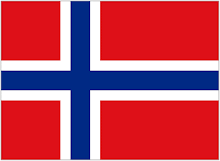
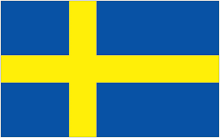






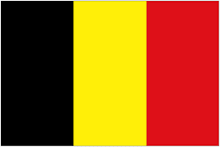

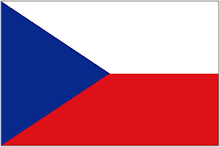











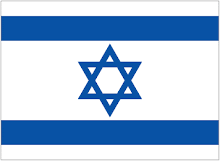




1 comment:
This to me looks like a very bias point of view that you look to have on the conflict leaning more towards the Serb side. I don't necessarily agree with most part of it. I think that there is always another side to that story and that the number of casualties that you posted don't correlate with other facts and numbers posted by the UNMIK and OSCBE. Nonetheless the Kosovo war was a cruel cold war in between the military armed forces of Serbia vs the Albanian unarmed population. Nowadays that is not called war but genocide and war-crimes against humanity.
Post a Comment